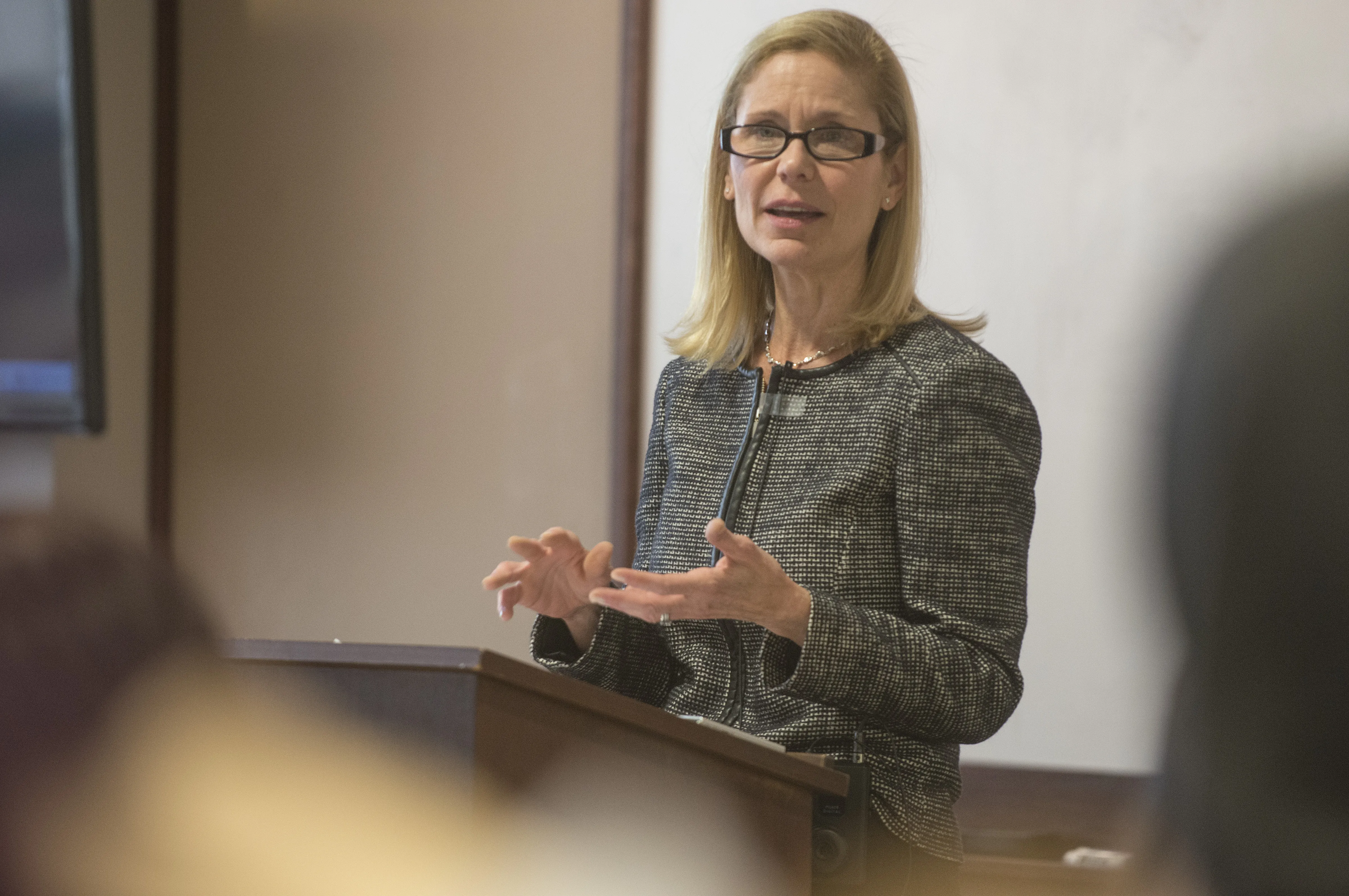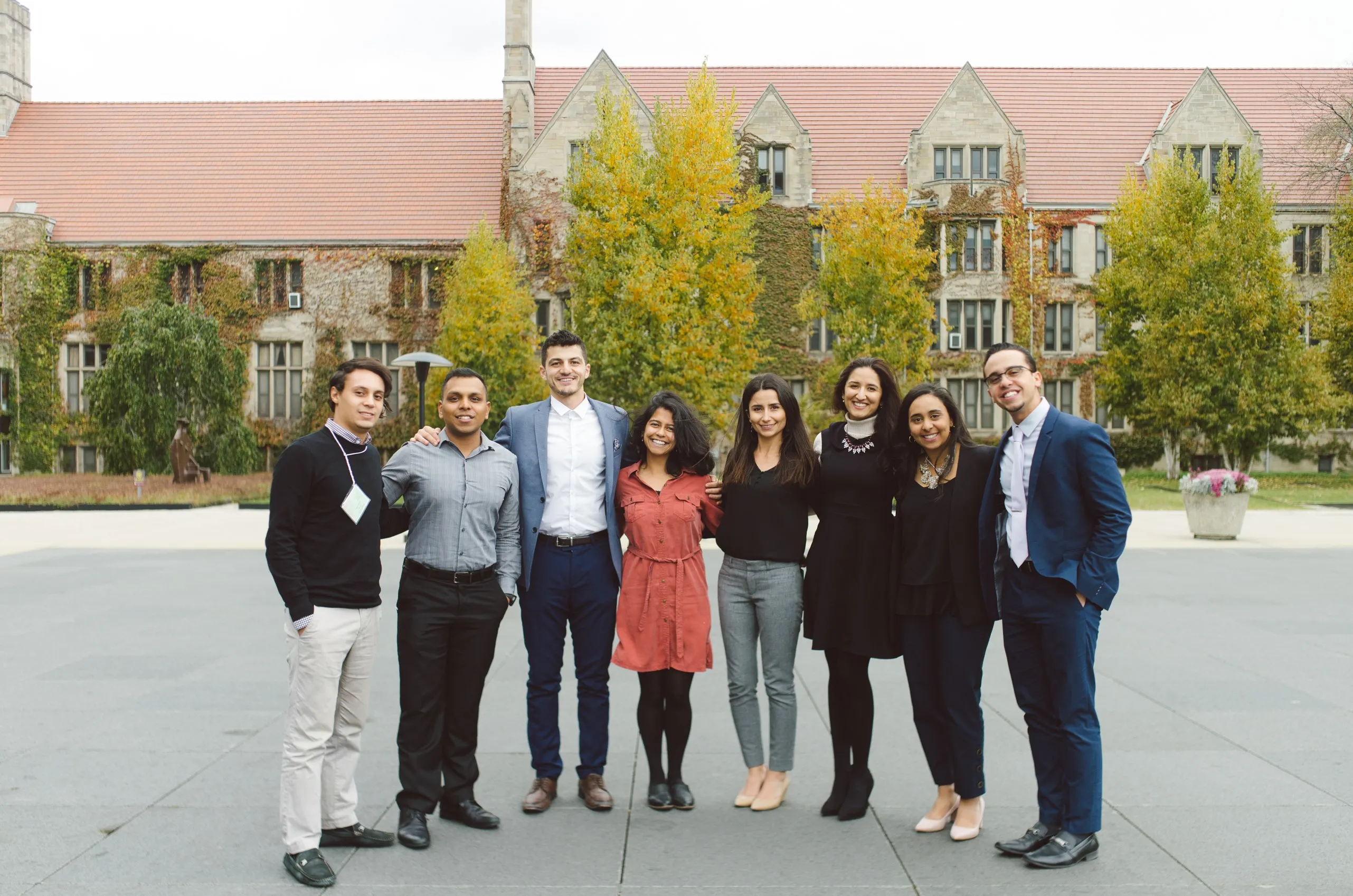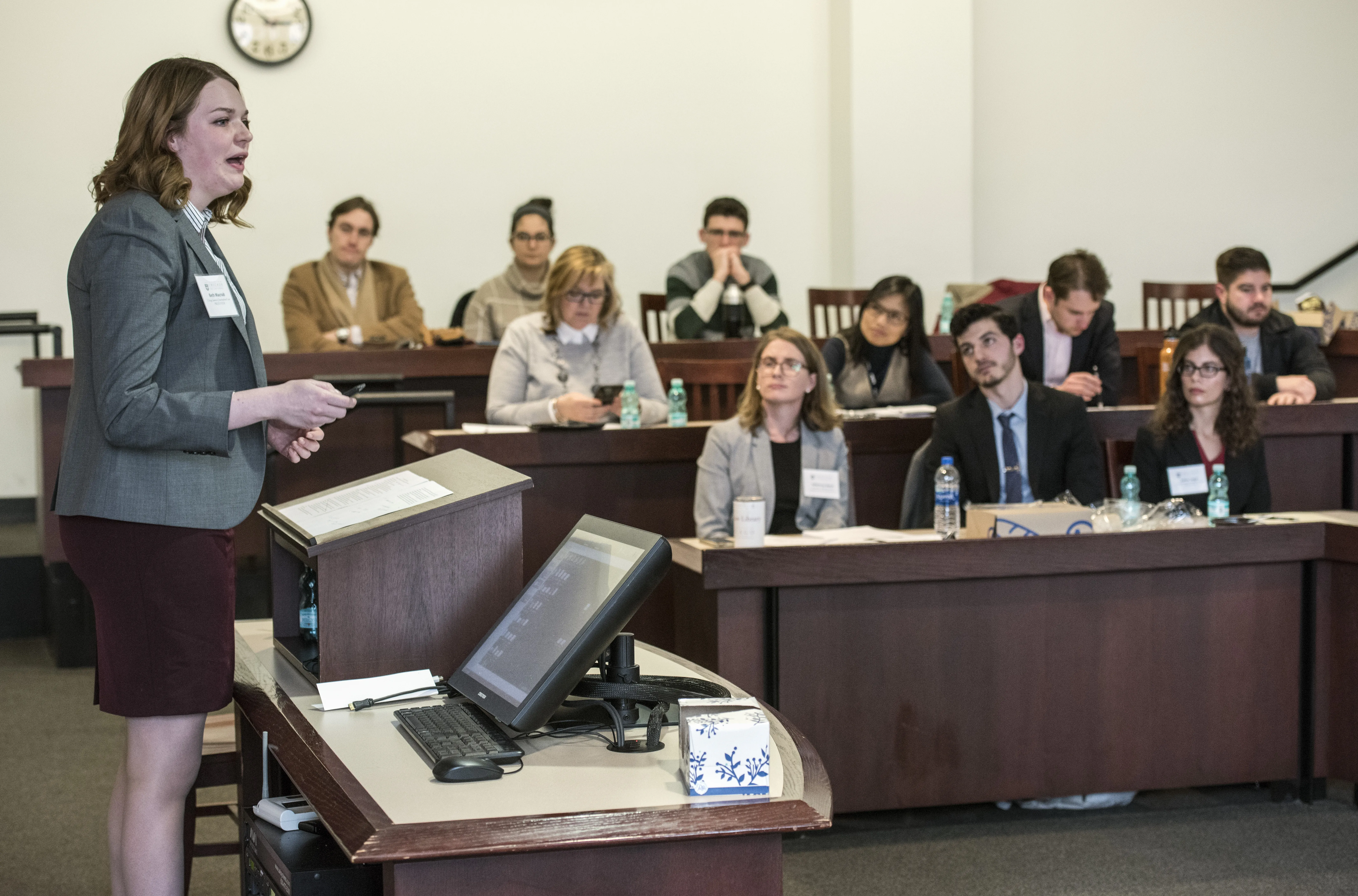Inside the Fourth Circuit Court of Appeals: How Collegiality Works

When courts write strident dissents that conflict with the majority opinion, some might think there is interpersonal tension among the judges. But that isn’t always so—and disagreement isn’t always a bad thing, US Fourth Circuit Judge Pamela Harris told Law School students recently.
Among her colleagues on the US Court of Appeals for the Fourth Circuit, there is a custom of collegial persuasion that produces well-written opinions, promotes judicial efficiency, and leads to greater confidence in unanimous decisions. It’s a collegiality, she said, that isn’t about civility and good manners—though those things do matter—but about allowing productive disagreement to strengthen their collective decision-making.
“It’s leaning in and making active engagement with your colleagues,” Harris said during a talk that was part of the Law School’s Edward H. Levi Distinguished Jurist Program. It’s “knowing each other, really respecting each other and knowing each other’s views, being willing to be persuaded and also to persuade; to be part of a robust, deliberative process.”
In an appeals court setting, collegiality is important for several reasons, Harris said. First, deciding how a case comes out is “fundamentally a group enterprise,” which is different from the district court process.
“I can’t get anything done without persuading another judge to do something with me,” Harris said.
Judicial panels often disagree on hot-button issues that stir passions about morality and set precedent for an entire group of practitioners—and collegiality is particularly important in these high-stakes situations, she said.
“If [the] panel does not ultimately agree in those difficult cases, it does not mean there’s been a failure of judicial collegiality,” she said. “On the contrary, if panels always fully agreed in those hard cases it would look less to me like collegiality and more like a remarkably and probably unproductively homogenous bench or the suppression of dissenting views: someone is not saying what she really thinks. In my mind. . . collegiality and the suppression of disagreement are at cross purposes with each other.”
This statement resonated with Nabihah Maqbool, ’18, who attended Harris’s talk.
“I thought her distinction between collegiality and civility was so important because it maintains the fact that lawyers and judges can feel strongly about a subject and are allowed to disagree and dissent amongst each other while still creating a collaborative process to reach a final opinion,” Maqbool said.
Harris said Fourth Circuit judges encourage each other to express disagreement while maintaining a friendly and professional atmosphere both through well-defined traditions and informal gestures. For instance, the first time a fellow judge wrote a dissent to Harris’s majority, he called her before circulating the document. He explained that his comments were not personal and that he meant her no disrespect. This seemed obvious during the call, she told students—but, after she read his dissent, she was grateful he had reached out.
Other traditions also create a collegial atmosphere. For instance:
- The group rarely talks about cases informally, which ensures that the deliberations are structured and equal. Harris said formal deliberation also leads to efficiency.
- Each judge comes prepared to conferences and arguments. Although this might seem a given, Harris said, “I don’t respect my colleagues’ intuitions about cases as much as I respect their educated and considered views.”
- At conference, everyone gets a chance to speak. Taking turns helps foster an equal and respectful deliberation process.
- The judges follow every conference with a social lunch. Harris admits she was skeptical about this at first because her inclination was to decompress alone after conference. That changed after she joined the Fourth Circuit. “It’s a key ritual of collegiality making manifest that the disagreements about cases have no consequences for our personal interactions.”
Harris—who worked in private practice, the corporate sector, government, and academia before becoming a federal appellate judge in 2014—maintains that collegiality is key to any lawyer’s successful practice.
“Much of your life as a lawyer is going to be about collaboration and collegiality,” she said. “Certainly in every job I’ve ever had, I’ve worked in groups and on teams very productively. I’ve learned from my colleagues. I’ve been persuaded by colleagues, and treasure the personal relationships I have with colleagues; none of that is unique to judges.”


